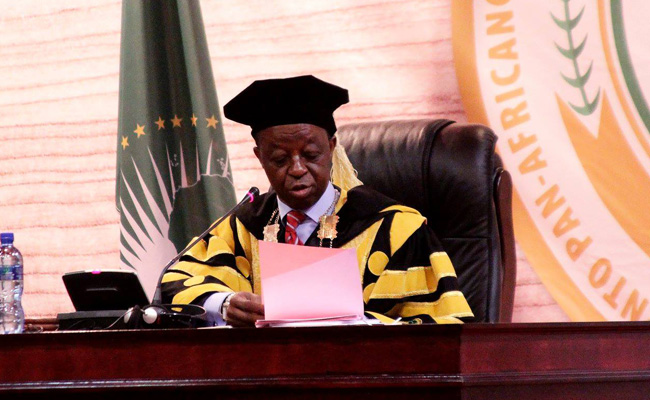On 18 May 2018, the Pan African Parliament (Parliament) adopted a Resolution on Persons with Albinism in Africa (Resolution). The Parliament is an organ of the African Union (AU), which was established to ensure that Africa takes full ownership and participation in the development and sustainable transformation of the continent. The Parliament sits in Midrand, South Africa and comprisesof 53 AU member states. The Parliament holds the mandate to issue resolutions and recommendations on key developmental and social issues affecting the African continent.
The Centre for Human Rights welcomes this Resolution, as it is a timely response to the heightened attacks against persons with albinism in several African countries. In 2018 alone, documented attacks -including murder, mutilation, trafficking in body parts and kidnapping- have been recorded in Benin, Zambia, Tanzania, Malawi, Mozambique, South Africa, Cameroon, Ghana, Nigeria, Togo, Democratic Republic of Congo and Guinea. The root causes for these attacks are largely based upon superstitious and unfounded beliefs that the body parts of persons with albinism have potent powers when used for ritual purposes.
It is therefore commendable that the Resolution endorses the Regional Action Plan on Albinism in Africa (2017-2021), which lays out specific measures for addressing attacks and discrimination against persons with albinism through prevention, protection, accountability as well as equality and non-discrimination. The Regional Action Plan on Albinism in Africa continues to be a critical tool to inform State action on immediate, medium and long-term actions to respect and protect the lives of persons with albinism within respective countries and across the African region. Thus, the Resolution rightly calls upon States ‘to take all measures necessary to adopt and implement the Regional Action Plan and to ensure the effective protection and promotion of the rights of persons with albinism and members of their families.’ (paragraph 4)
Aside from these gruesome attacks, the Centre for Human Rights applauds the Pan African Parliament for specifically recognizing- in its preamble of the Resolution- that ‘persons with albinism in the region continue to face prejudice, stigmatization and social exclusion, as well as multiple and intersecting forms of discrimination which impede the enjoyment of their human rights.’ Beyond these unacceptable attacks on persons with albinism, the Centre for Human Rights continues to reiterate that there is still lack of awareness and adequate measures to protect the rights of persons living with albinism in general. For instance, states continue to fail to provide reasonable accommodation regarding vision impairment and skin protection of persons with albinism which in turn catalyzes their susceptibility to skin cancer. Thus, and as a result of skin cancer, only 2% of persons of albinism live beyond the age of 40 in several countries in spite of the fact that skin cancer is a preventable disease.
The Centre for Human Rights therefore appeals to states to accelerate nationwide awareness raising campaigns on the rights of persons with albinism, as well as strengthen effective investigations and prosecutions of all cases of attacks against persons with albinism. Such efforts must be coupled with strengthened protection and victim assistance measures as well as the provision of an enabling legal and policy frameworks that enshrine the rights and welfare of persons with albinism.


